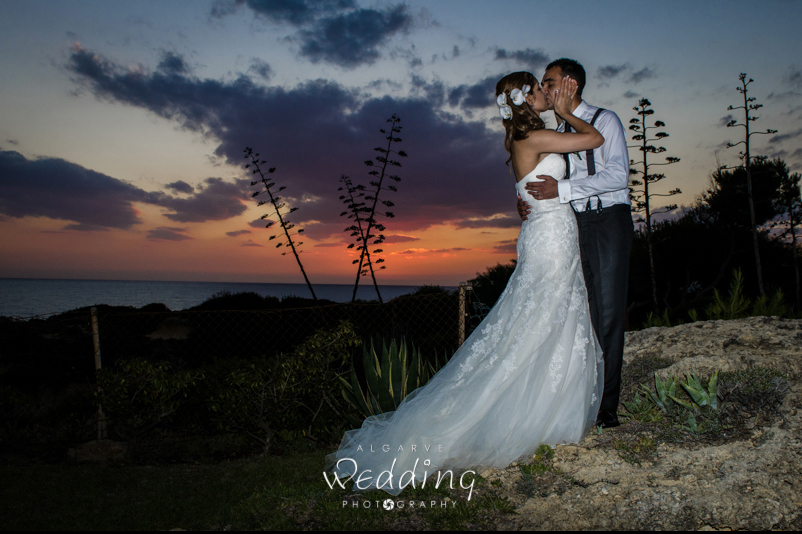The step-by-step guide to realistically budgeting for your wedding. By Lindsie Rowe

No one wants to think about it, they don’t want to talk about it and they definitely do not want to deal with it. It’s the ever-dreaded wedding budget. No matter how hard you may try to ignore it, a wedding budget is vital in planning for your big day; you need to know how much you can spend and on what. Oftentimes couples go over their budget when they find the ‘perfect photographer’ or decide that they absolutely need that turquoise vintage getaway car because, “It matches our colours,” and you can’t imagine leaving the church in anything else. No matter which key elements of your wedding mean most, you need to be prepared to stay within your budget. These hard economic times have left us all scouring for ways to save but research has shown weddings are one area where people are still splurging. So, in order to find a balance between the two while creating your perfect day, follow these simple steps and you’ll be well on your way to a beautiful wedding that you can afford.
1. Engaged? Congrats! Now start saving.
Though an engagement is something to celebrate, don’t go overboard with the celebratory night-outs and announcements to friends. One small engagement party or dinner is enough. Although you want the good times to begin now, you’ll be grateful in the end when your wedding is exactly what you pictured it to be.
2. Figure out who pays for what.
Tradition holds that the Bride’s family pays for the ceremony and reception while the Groom’s family pays for the honeymoon. Now days, couples often find themselves footing the bill. The reasons for this vary, families may be divorced or separated, cannot afford a wedding or the couple may simply want to pay for it themselves. Either way, you’ll need to know where the money for the wedding is coming from so you know exactly what to expect.
3. Divide up the wedding into sections and decide which part is most important to you and your H2B.
Would you rather have a small intimate and meaningful ceremony or a large reception with good food and all your friends and family? Figuring out what means most to you as a couple is key in making your big day special. From there, it is easier to decide which things you are willing to cut and which things are absolutely necessary in order to match your budget.
4. Test the Water
Before you make a set budget, it is a good idea to price check different suppliers and get a rough estimate of total costs. Make note of bridal attire, venues, caterers and photographers, as those can eat up a big portion of the budget quickly. Prices can often come as a shock to couples if they don’t know what they’re in for.
5. Figure out what you can afford now and at the date of the wedding.
A good starting place is how much money you have saved up now. That may not be a lot, but don’t get discouraged, knowing how much you have when living regularly will give you a good idea as to how much you can save up when you give up that daily latte or going out on the weekdays. If necessary, plan the date of the wedding around a time that you think you will have enough money saved up. Longer engagements give couples more time to save, so be realistic in deciding when the time is right.
6. Add up the grand total.
Now is the time to figure out how much you will have total to spend on your big day. First, add up the money that is being given by parents or future in-laws. Make sure to respect the money that is being offered and try to avoid asking for more, your loved ones will help you out in any way they can. Next, figure out what you have now and what you plan to have by the date of your wedding. Add all of it together to give you a total sum of how much you and your fiancé can spend on your big day.
7. Realistically plan out your wedding budget.
Taking into account everything that has been mentioned above. Make a list of what you want at your wedding, how much it costs and what you’re willing to spend on it. Weddings are often times broken down into 12 parts.
- Ceremony (Church, Priest, Candles): 2%-3%
- Reception (Venue, Caterer): 48%-50%
- Attire (Wedding Gown, Tux, Bridesmaids and Groomsmen): 8%-10%
- Décor and Flowers: 8%-10%
- Music/Entertainment: 8%-10%
- Photography/Videography: 10%-12%
- Stationery: 2%-3%
- Wedding Rings: 2%-3%
- Parking and Transportation: 2%-3%
- Gifts: 2%-3%
- Beauty (Hair & Makeup, Pedicures, Manicures, Massages etc.): 2%-3%
- Honeymoon: 3%-6%
It is also important to budget an emergency fund in case something goes awry before or on your wedding day. Although this fund may be optional, it is highly recommended to keep approximately 4%-5% of your budget tucked away just in case! Try to save it until the day of the wedding if possible and if it is not necessary, then voila! Extra honeymoon money!
